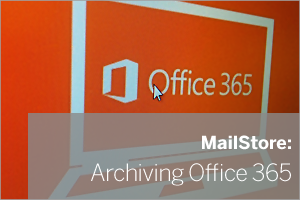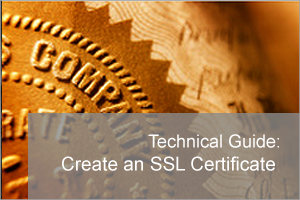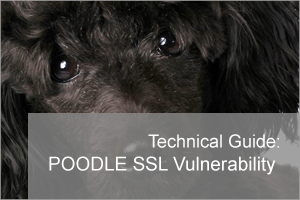01
Dec
Archiving Office 365 with MailStore just got even quicker!
 If you're using Office 365, or one of the many hosted Exchange variants available today, you may be aware that MailStore has long been able to give you a complete and automatically synchronised off-site copy of your mail.
I've always been happy recommending it as a solution, Office 365 outages happen so it is popular among our customers, however when my colleagues over in the German development team at MailStore let me know about their recent breakthrough in the latest version, I could immediately see the potential for hosted Exchange customers.
If you're using Office 365, or one of the many hosted Exchange variants available today, you may be aware that MailStore has long been able to give you a complete and automatically synchronised off-site copy of your mail.
I've always been happy recommending it as a solution, Office 365 outages happen so it is popular among our customers, however when my colleagues over in the German development team at MailStore let me know about their recent breakthrough in the latest version, I could immediately see the potential for hosted Exchange customers.


 Alt-N Technologies, BackupAssist, MailStore....they were all there. And that's not all, we were even fortunate enough to bag a couple of inspirational guest
Alt-N Technologies, BackupAssist, MailStore....they were all there. And that's not all, we were even fortunate enough to bag a couple of inspirational guest  If you've recently made the move to MailStore version 9, it's entirely possible you'll be sat there wondering why on earth all of those archiving jobs you had set up can't be modified any more.
If you've recently made the move to MailStore version 9, it's entirely possible you'll be sat there wondering why on earth all of those archiving jobs you had set up can't be modified any more.
 Today's nugget of MDaemon wisdom comes from conversations I've had with a small number of customers reporting they're unable to send outbound email to specific recipients.
Upon closer inspection of the error in the SMTP (OUT) log, there's a message reading "SSL negotiation failed".
Today's nugget of MDaemon wisdom comes from conversations I've had with a small number of customers reporting they're unable to send outbound email to specific recipients.
Upon closer inspection of the error in the SMTP (OUT) log, there's a message reading "SSL negotiation failed".
 October, as you'll probably know, is the unofficial 'silly season' for IT gatherings in the UK.
It's around this time each year, vendors, exhibition companies and industry bodies go all out competing for the attention of the IT support companies and MSP's they'd like at their events.
October, as you'll probably know, is the unofficial 'silly season' for IT gatherings in the UK.
It's around this time each year, vendors, exhibition companies and industry bodies go all out competing for the attention of the IT support companies and MSP's they'd like at their events.
 It may only be labelled a point release, but version 14.5 is absolutely crammed with improvements, highlighted by the somewhat 'epic' release notes linked below.
This release sees the addition of
It may only be labelled a point release, but version 14.5 is absolutely crammed with improvements, highlighted by the somewhat 'epic' release notes linked below.
This release sees the addition of  Configuring any Web service to work over HTTP using SSL is a good idea.
We certainly recommend it for BackupAssist's Multi-site Manager (BAMM) and in this post I'll show you how to create an SSL certificate you can then bind this kind of service to.
Configuring any Web service to work over HTTP using SSL is a good idea.
We certainly recommend it for BackupAssist's Multi-site Manager (BAMM) and in this post I'll show you how to create an SSL certificate you can then bind this kind of service to.
 Selecting backup software is an important decision. You need to compare your data protection needs against the features provided, and make a careful evaluation of what backup solution provides the best value.
In this post we explore some of the key requirements, and how both
Selecting backup software is an important decision. You need to compare your data protection needs against the features provided, and make a careful evaluation of what backup solution provides the best value.
In this post we explore some of the key requirements, and how both  A new SSL vulnerability is doing the rounds this morning, known as POODLE, or Padding Oracle On Downgraded Legacy Encryption.
POODLE is a newly disclosed vulnerability in the legacy SSL 3.0 protocol that could be exposing users of newer Transport Layer Security (TLS) encryption protocols to risk.
If exploited, the POODLE flaw could potentially enable an attacker to access and read encrypted communications.
A new SSL vulnerability is doing the rounds this morning, known as POODLE, or Padding Oracle On Downgraded Legacy Encryption.
POODLE is a newly disclosed vulnerability in the legacy SSL 3.0 protocol that could be exposing users of newer Transport Layer Security (TLS) encryption protocols to risk.
If exploited, the POODLE flaw could potentially enable an attacker to access and read encrypted communications.